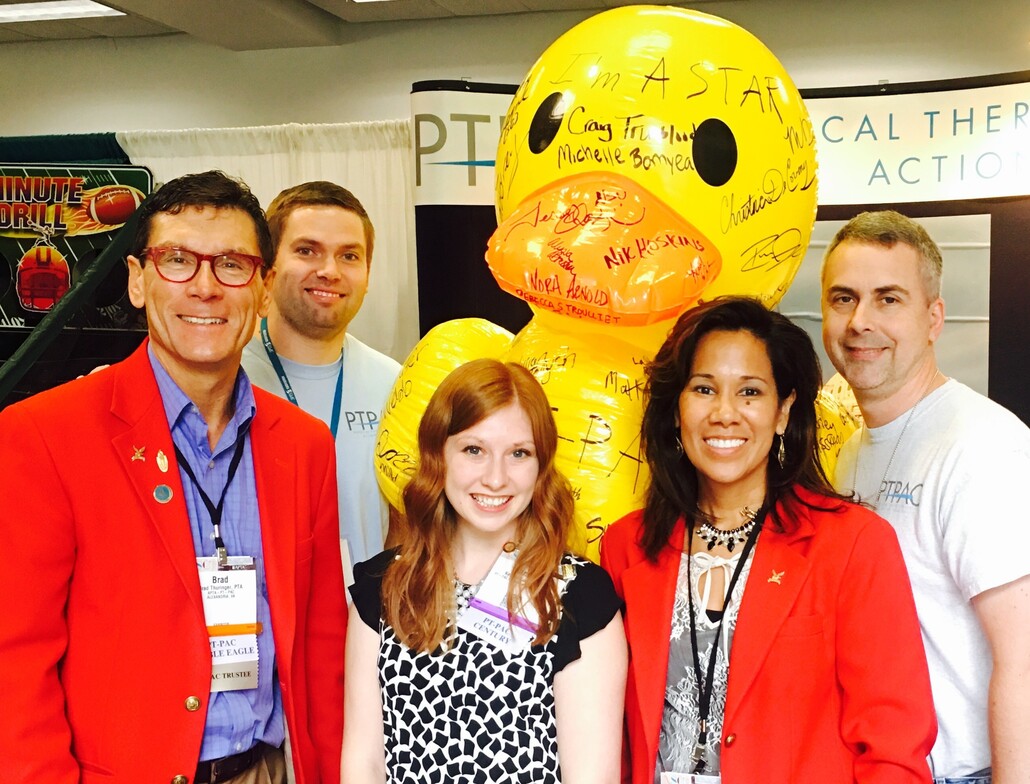Leadership has never been just a title to me—it’s a responsibility, a calling, and a daily practice rooted in service. From serving as Class President of the University of Dayton Doctor of Physical Therapy Class of 2016 to advocating nationally for my profession as a Board of Trustees Member for the Physical Therapy Political Action Committee (PT-PAC), I’ve had the honor of leading in many different capacities. Today, I’m proud to serve my community as the founder and owner of Mermaid Well, a health and wellness clinic dedicated to helping people with complex health conditions find hope, healing, and wholeness.
But long before I stepped into these professional roles, I learned the most important lessons about leadership from my dad—Jeff Lucas. My dad exemplifies what I now call the 4 C’s of Leadership: Character, Competence, Competitive Drive, and Connection. He leads with integrity, works with excellence, gives his all, and connects deeply with everyone he meets. He’s not only my role model—he’s the reason I believe in leadership that serves others first.
He also believed in me before I believed in myself. He made an early investment in my growth as a leader by taking me to Student Leadership University, a program that deeply shaped how I think about influence, integrity, and impact. The foundation built there continues to guide how I lead today.
This blog is a reflection on the 4 C’s of Leadership—what they mean, why they matter, and how we can all embody them more fully, no matter where we lead.
Whether you’re leading a company, a classroom, a clinic, or a community, the best leaders don’t just manage tasks—they move people. True leadership requires more than charisma or authority. It requires a foundation built on integrity, skill, strategy, and connection. That’s where the 4 C’s of Leadership come in: Character, Competence, Competitive Drive, and Connection.
These four traits form the cornerstone of sustainable, service-oriented leadership. Let’s explore how each one plays a critical role in shaping a leader who inspires trust, drives progress, and brings out the best in others.
1. Character: The Foundation of Trust
Leadership without character is like a house built on sand. Character is your moral compass—it’s how you show up when no one is watching. It’s about integrity, humility, responsibility, and authenticity.
Great leaders don’t just talk about values; they live them. They own their mistakes, stand up for what’s right, and hold themselves to a higher standard. Character builds trust, and trust is the currency of leadership. When people know your actions align with your words, they’ll follow you with confidence.
In a world that often rewards shortcuts, character is what sets true leaders apart. It’s not about perfection—it’s about consistency and accountability.
2. Competence: The Skill to Execute
Having a strong moral compass is essential, but without competence, even the best intentions can fall flat. Competence means having the knowledge, skills, and emotional intelligence to perform and lead effectively.
This isn’t just technical ability—it also includes decision-making, communication, and the ability to adapt under pressure. Competent leaders are lifelong learners. They’re willing to admit what they don’t know, ask questions, and surround themselves with people who make them better.
When leaders are competent, they create stability and inspire confidence. Teams thrive when they know their leader is capable and prepared.
3. Competitive Drive: The Will to Win
Being competitive isn’t about defeating others—it’s about striving for excellence. This C is about grit, ambition, and the desire to grow, improve, and lead your team to success.
Competitive leaders set high standards, challenge the status quo, and don’t shy away from hard work. They don’t settle for mediocrity—they’re driven by purpose and fueled by progress. They celebrate team wins and see setbacks as setups for comebacks.
Importantly, a healthy competitive spirit isn’t rooted in ego—it’s rooted in a commitment to growth and innovation.
4. Connect: The Power of Relationships
You can be ethical, skilled, and driven—but if you can’t connect with people, your leadership will be limited. Connection is the heart of influence.
Strong leaders create psychological safety, practice empathy, and build genuine relationships. They listen deeply, communicate with clarity, and care about the people they serve. Connection fosters collaboration, trust, and loyalty.
People don’t just follow titles—they follow leaders who make them feel seen, valued, and understood.
Leading with All Four
The most impactful leaders cultivate all four C’s in balance. Character keeps you grounded. Competence keeps you effective. Competitive drive keeps you growing. Connection keeps you human.
Leadership isn’t a position—it’s a practice. And when you lead with all four C’s, you don’t just lead well, you lead in a way that creates lasting change.
Are you cultivating the 4 C’s in your leadership journey? Start today—your impact starts with who you are.
Dr. Kendra Lucas
Contact Me


















